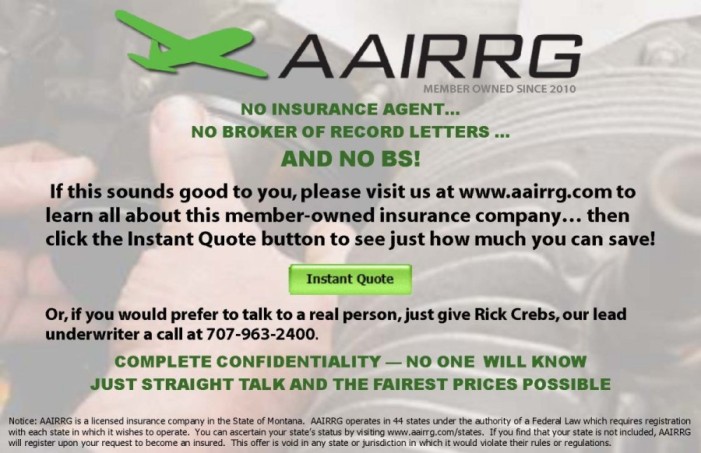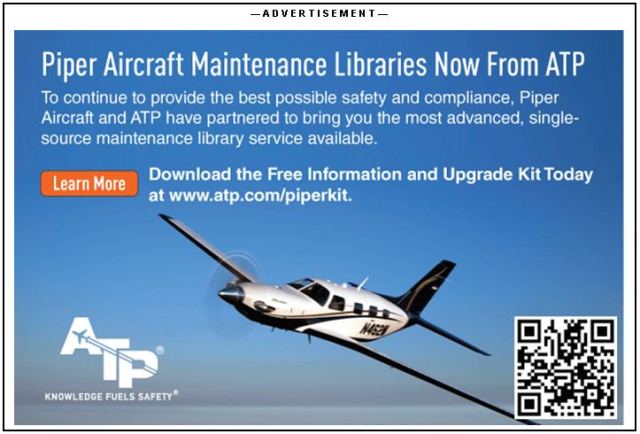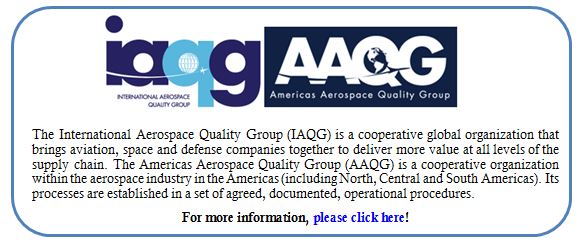2016 – Edition 2 – March 3
Table of Contents
Doing an Aviation World of Good
By Brett Levanto, Vice President of Communications
ARSA is the voice of the international aviation maintenance industry; the association is devoted to the unique needs of a complex, global industry. Through regulatory compliance services, legislative advocacy, training sessions, publications, events and media engagement, we remind governments, policymakers and the general public of a simple truth: you can’t fly without us.
The Annual Repair Symposium is ARSA’s brightest showcase. Every year, its members are brought face-to-face with elected leaders, industry executives, government officials and international representatives. Put simply, when you get to Washington, D.C., the aviation world is yours—international topics and participants mark every page of the Legislative Day and Symposium agenda.
On March 16, ARSA’s Daniel B. Fisher and Christian A. Klein will join Steve Douglas, vice president of CAVOK and former director of the FAA’s Aircraft Maintenance Division, to unveil the association’s Annual Global Fleet and MRO Market Assessment.
On March 17, ARSA’s Managing Director and General Counsel Marshall S. Filler will discuss change 5 to the U.S.-EU Maintenance Annex Guidance (MAG). Last year, the association led a successful, aviation industry-wide campaign to “smooth” implementation of the change and correct regulatory gaps related to parts documentation. With that victory behind us, it’s time to reflect on the change, consider its implementation and prepare for the next.
On March 18, Marshall will return to his international expertise by leading a breakout session on international certification. In a discussion with regulators from EASA and the National Civil Aviation Agency of Brazil (ANAC), participants will explore varying requirements and learn how to navigate a tangled world-wide web.
These sessions—supported by presenters and participants from four different continents—perfectly complement the symposium’s complete coverage of matters essential to the maintenance industry. If you can’t be with us from the 16th to the 18th, the association will continue to bring the world to you through its services and communications. From the Singaporean MIP to import/export compliance to bilateral relationships—all in this edition of the hotline—and everything in between, ARSA works for you.
Every day of the year, the association helps its members manage the intersection of business and government. For three days in March, we come together to share and learn not only about how that work serves the men and women who keep us all safely in flight, but also how we can do it better.
Join us. Together we can do a world of good.
Symposium 2016
By ARSA Communications Team
If you haven’t registered for ARSA’s 2016 Legislative Day and Annual Repair Symposium, do it now.
The agenda is stuffed with valuable information and exchanges – from Wednesday on Capitol Hill through Thursday’s regulatory and business content to the breakout sessions on Friday morning. To make the most of your trip to the nation’s capital, choose your breakout session wisely.
Study your options:
Breakout Session 1: Reporting Maintenance Errors
Want to work with the FAA to develop a new method for reporting maintenance issues? Help build an exciting and viable system that will allow real-time reporting and reviewing of maintenance information. The “good, the bad and the ugly” is only helpful if reported and reviewed in a timely manner; this system can make that happen. Get an update on the Aviation Data Exchange (AVDEX) program and provide your feedback.
Keith Lardie, Aerospace Engineer, Operational Oversight Policy Branch, FAA
Wayne “Buck” Foughty, Manager of Quality Assurance, AAR Aircraft Services – Oklahoma
Moderator: Brett Levanto, Vice President of Communications, ARSA
Breakout Session 2: Preferred Providers
Want to save money? Become more efficient? Learn about the association’s preferred providers and ensure your membership produces a direct and immediate return on investment. ARSA uses the collective influence of its membership, as well as its long experience, to select vendors and service providers that meet the needs of the aviation maintenance industry. For members, these relationships produce favorable contracts, special products and other benefits.
Shirley Z. Negri, Chief Operating Officer, NATA Compliance Services, LLC
Mohan S Perumal, Associate Vice President, Sales & Implementations, Ramco Systems
Tom McVey, Chair, International Section, Williams Mullen
Moderator: Daniel B. Fisher, Vice President of Legislative Affairs, ARSA
Breakout Session 3: International Certification of Maintenance Organizations
Interested in obtaining a repair station certificate in another nation? Already have a “foreign” certificate? Aviation maintenance is a global industry, but to compete internationally companies must deal with various national aviation authorities. Hear about regulatory requirements and explore the details of international certification in order to navigate the tangled web.
David Fitzsimmons, Program Manager, Delta Air Lines
Hélio Tarquinio Junior, General Manager, ANAC
Karl Specht, Continuing Airworthiness Organisations Manager, Approvals and Standardisation Directorate, EASA
Moderator: Marshall S. Filler, Managing Director & General Counsel, ARSA
Breakout Session 4: How to Sell (or Buy) a Repair Station – Big or Small
Thinking of selling your MRO business? Buying another? Joining two or more into a comprehensive organization? A special team of experts will give an overview on how to buy, sell or combine an MRO business. Get to know them during symposium, because ARSA members will have preferred access to these practitioners through Obadal, Filler, MacLeod & Klein, P.L.C., the association’s management firm.
Selling: Whether you are planning on retiring, divesting, monetizing your investment or you’re outright ready to sell, learn the elements from start to finish: prepare for a sale, value your business, go to market with a teaser and confidential information memorandum, find the right buyer, set up a data room and evaluate, negotiate and close the deal with acceptable risks for both sides. Even if you aren’t planning a sale now, learn the most value-add actions you can take to optimize your future outcome: Learn how to act today in order to capture maximum value when you are ready to monetize or bring in new capital.
Buying: Learn the elements of buying an aviation maintenance business from start to finish. How to find the right companies, conduct due diligence, do a valuation analysis, obtain debt and equity financing for your acquisition and, finally, negotiate and close. Engage in an open discussion of the who, what, where, when, how and why of buying an MRO business.
Something In Between – Forming a Joint Venture: Many of the points on how to sell or buy an MRO business apply when combining entities into a joint venture. So if that’s in your game plan, you’ll be able to use what you learn from this session to that objective as well.
Al Givray, Law Partner, Davis Graham & Stubbs, LLP & General Counsel, The NORDAM Group, Inc.
Brian Karpiel, Managing Director, Investment Banking, Seabury Group, LLC
Moderator: Sarah MacLeod, Executive Director, ARSA
Bringing the Aviation World to You
By ARSA Communications Team
In mid-March, ARSA will bring the aviation world to the capital of the United States. American regulators, government officials and aviation stakeholders will be joined by a contingent of international representatives to tackle the issues that matter to the future of maintenance.
On March 17, Transportation Security Administration (TSA) Administrator Peter Neffenger will be the symposium’s luncheon speaker. His participation is the result of focused effort: In the wake of TSA’s release of the repair station security rule, ARSA lobbied successfully to include – and then represent – repair stations on the Aviation Security Advisory Committee (ASAC).
Neffenger’s talk is part of a full agenda that kicks off with a keynote address by FAA Associate Administrator for Aviation Safety Peggy Gilligan. Including discussions with experts in technical workforce development, aviation industry analysts and legal matters as well as members of ARSA’s executive team, the symposium will also feature representatives from EASA and the National Civil Aviation Agency of Brazil (ANAC).
Each year, ARSA provides a platform for the international maintenance community to engage on the issues that impact the industry’s future. Every speaker, panelist and attendee is vital to that engagement. Your colleagues will be in Washington from March 16-18. Come connect with them.
All you have to do is get here and the association will do the rest.
Annual Member Meeting Notification
By Crystal Maguire, Vice President of Operations
ARSA bylaws require the association hold an annual member meeting at such time and place as determined by the Board of Directors. This important session is held annually in conjunction with the Annual Repair Symposium; this year it will take place during the Breakfast and Annual Report on Friday, March 18 at 8:00 a.m. at the Ritz Carlton, Pentagon City in Arlington, Virginia.
ARSA President Gary Hudnall will address members regarding the state of ARSA. After Hudnall’s presentation, attendees are welcomed and encouraged to discuss matters relevant to the association.
If you are unable to attend – symposium registration is still open – but would like to submit comments/questions to ARSA’s board, please use the form on arsa.org/contact.
Hotline Features
2016 Member Survey – Your Snapshot of Aviation Maintenance
By Brett Levanto, Vice President of Communications
The association’s annual survey has been emailed to the primary contact at every member organization. Don’t miss the opportunity to contribute to ARSA’s work on behalf of the industry.
Responses are invaluable to the association as it works with regulators and lawmakers, develops resources and addresses the challenges most impactful to the repair station community. This is your snapshot of aviation maintenance – make it useful.
Visit ARSA’s data and advocacy page to view a series of infographics made using data from last year’s survey combined with the 2015 Global Fleet and MRO Market Assessment.
Want to ensure that your company got the survey? We can help.
Support American Jobs for America’s Heroes
By ARSA Communications Team
In 2016 tens of thousands of military service members will separate from duty, joining more than one million veterans already looking for full-time jobs. Many employers, including ARSA members, can do more with the right networks and information to hire veterans, reservists and national guardsmen.
Center for America (CFA), a nonprofit, is conducting a national employer survey to identify the specific problems different industries – and geographic locations – have in recruiting military candidates. To support this effort, CFA is collecting responses to a 10-minute online questionnaire. ARSA encourages its members to participate in this important work.
Click (or copy and paste) the address to begin: https://www.surveymonkey.com/r/36PW85F_CFA.
Submissions are due by April 1. The association’s code – to be entered in the first question – is A442.
CFA has been coordinating the American Jobs for America’s Heroes national campaign for four years under a written agreement with the Army National Guard in Washington, DC. Please contact Steve Nowlan, president of Center for America and coordinator for the American Jobs for American Heroes campaign, with any questions or for free help with veteran recruiting. Steve can be reached at 201.513.0379 or SNowlan@CenterForAmerica.org.
Click here to download CFA’s best practices guide for veteran hiring.
Click here to download CFA’s guide to federal tax benefits for hiring and employing veterans.
What do ARSA and Cate Blanchett Have In Common?
By ARSA Communications Team
Cate Blanchett and ARSA have at least one thing in common: Both are in the March 2016 edition of Vanity Fair magazine. Blanchett is featured for her movie career (48 films, 2 Academy Awards and 3 BAFTAS), ARSA for standing up for the aviation maintenance industry in the face of lazy journalism.
While Blanchett graces the magazine’s cover along with other Hollywood luminaries, you’ll find ARSA on the “Letters to the Editor” page (page 98 of the March print issue), where the magazine printed ARSA Executive Vice President Christian A. Klein’s submission highlighting the maintenance industry’s contributions to the U.S. economy, airline efficiency and aviation safety while refuting allegations made by James B. Steele about MRO in his “Disturbing Truth About How Airplanes Are Maintained Today” published in Vanity Fair in December 2015.
The full version of Klein’s response to Steele’s article is below (“Contract Aviation Maintenance: Safer, More Efficient”). The edited version printed by Vanity Fair read as follows:
James B. Steele missed the opportunity to tell about a thriving, technologically sophisticated industry that employs hundreds of thousands of Americans.
Contracting isn’t a trend; it’s the way almost all maintenance is done on aircraft. Highly specialized F.A.A.-certified companies and individuals can perform the work more efficiently and effectively than owners and operators. Repair stations have helped air carriers reduce costs and become more competitive without compromising safety.
Steele’s premise, that this is disturbing, collapses under the weight of a simple fact: the use of contract maintenance has coincided with the safest period in the history of U.S. civil aviation. The impressive safety record is the result of a successful and ever improving network of industry controls working in concert with government regulations.
Christian A. Klein
Executive vice president
Aeronautical Repair Station Association
Alexandria, Virginia
For the past decade, ARSA has mounted an aggressive campaign to inform the public about the quality of the work performed by repair stations and the industry’s substantial economic contributions. The association’s communications team reaches out to journalists and monitors the media on daily basis looking for opportunities to tell the industry’s story. If you think an article warrants a response by ARSA, please share it via arsa@arsa.org or call 703.739.9543.
And when you see Vanity Fair on the newsstand, remember: ARSA is out there working for you!
ARSA Works
To see all the ways ARSA works as the voice of the aviation maintenance industry, visit our ARSA Works page.
Industry Pursues Clarity on Data Approval through AC Rewrite
By ARSA Regulatory Team
On Feb. 8, ARSA led an alliance of aviation trade associations in commenting on the FAA’s draft Advisory Circular 43-210A, “Standardized Procedures for Requesting Field Approval of Data, Major Alterations and Repairs.” The submission requested Flight Standards withdraw its update of the AC and instead work with industry to clarify existing information and guidance on approving data for major repairs and alterations.
Based on information gathered during a meeting with Airlines for America’s Engineering, Maintenance and Materiel Council (EMMC) as well as ARSA’s Jan. 27 listening session, the comments listed areas needing clarity with regard to data approval. The group also called for the agency to reconcile the draft AC with guidance provided in ACs 120-77 and 43-18 as well as the U.S.-EU technical implementation procedures (TIP) and maintenance annex guidance (MAG).
ARSA committed to support this work by administering a series of online sessions to investigate issues with existing guidance and discuss potential resolutions directly with the agency. The association will schedule these meetings in coordination with its co-signatories: the Aerospace Industries Association, the Aircraft Owners and Pilots Association, Airlines for America, the Cargo Airline Association, the General Aviation Manufacturers Association, Helicopter Association International and the National Air Carrier Association.
ARSA will engage its members throughout the process to ensure the maintenance industry can provide useful input to the agency. Stay tuned for opportunities to get involved.
To read the full comments, click here.
For more insight on major/minor determinations, register for ARSA’s on-demand training session Major Pain Over a Minor Issue.
Chief Counsel “Contemplating” Position on Housing Requirements
By ARSA Regulatory Team
On Feb. 1, FAA Chief Counsel Reggie Govan responded to ARSA’s Dec. 8, 2015 request for clarification on the applicability of 14 CFR § 145.103 housing requirements. In its original letter, the association questioned the agency’s position that a repair station must have a hangar to enclose the largest aircraft listed on its operations specifications – even if work is limited to airframe components and no aircraft is ever housed.
“We are aware of this issue…” the agency’s response said. “Because of these concerns [expressed in ARSA’s letter as well as numerous exemption and Consistency and Standardization Initiative (CSI) requests], the agency is contemplating rulemaking to make the repair station housing rules better accommodate current industry needs. In addition, [the chief counsel’s office is] working with the Flight Standards Service to explore whether there are near-term actions the agency may consider as well.”
To assist in that contemplation, ARSA plans to meet with the chief counsel’s office in order to facilitate action on behalf of certificate holders. Stay tuned as the association continues to work for commonsense housing requirements. If the agency’s position is causing trouble for your shop, tell ARSA first.
To read the response, click here.
Legal Briefs
This material is provided as a service to association members for educational and informational purposes only. It does not constitute legal or professional advice and is not privileged or confidential
FAA Inks Singapore Maintenance Implementation Procedures
By Crystal Maguire, Vice President of Operations
On Feb. 16, representatives of the FAA and the Civil Aviation Authority of Singapore (CAAS) signed the U.S.-Singapore Maintenance Implementation Procedures (MIP). The procedures outline a process by which the authorities will accept each other’s approved maintenance organization systems, a concept that is provided for in the U.S.-Singapore bilateral agreement, executed more than a decade ago.
The effective date of the new agreement is Aug. 14, 2016.
Implementation procedures outline the standards, rules, practices and systems for mutual acceptance, thereby reducing redundant regulatory oversight without adversely affecting aviation safety. They address aircraft certification (implementation procedures for airworthiness), maintenance (maintenance implementation procedures, which include repair station surveillance), environmental testing and approval and general technical cooperation.
Key dates and principles:
- The agreement enters into force on or about Aug. 14 (180 days after it was signed).
- Maintenance facilities that hold both FAA and CAAS certificates as of Aug. 14 must comply with the agreement not later than Aug. 14, 2018 (i.e., two years after entry into force).
- New applications submitted after Aug. 14, must comply with the MIP.
- Facilities located in Singapore that were certificated by the FAA prior Aug. 14, and DO NOT hold a CAAS certificate will continue under independent FAA oversight and are therefore “exempt” from the agreement (see MIP paragraph 2.1(c)).
In comparing the two regulatory systems, the authorities identified provisions lacking commonality as “special conditions.” Certificated entities that wish to apply for a certificate under the MIP must show compliance with these special conditions, as provided in Appendix 1. For U.S.-based repair stations, that includes:
- Submitting initial and renewal CAAS certificate applications and a letter demonstrating need.
- Providing a repair station manual supplement “accepted by the FAA” (on behalf of CASS) that includes:
- An accountable manager commitment statement.
- The scope of work the company will perform under the CAAS certificate.
- Instructions for completion of return to service documentation, CAAS Form AW 95.
- Procedures:
- To ensure work is performed in accordance with CAAS-approved data.
- To ensure compliance with CAAS-issued airworthiness directives and other “mandatory instructions.”
- For reporting unairworthy conditions as required by Singapore Airworthiness Requirements (SAR) part 145.
- For working away from a permanent location.
- To ensure usage of parts “acceptable to” CAAS.
- To notify CAAS of changes affecting SAR part 145
- Ensuring qualified return to service (RTS) personnel are assigned for work performed on Singapore-registered aircraft that is:
- Hold a mechanic certificate and have exercised the privileges of that certificate for at least two years.
- Are appropriately “type-trained” on the aircraft returned to service.
- Have at least six months aircraft maintenance experience in the preceding two-year period.
- For “base maintenance,” RTS personnel must hold a SAR part 66 Category C Aircraft Maintenance License.
- A training program that includes SAR part 145 regulatory and human factors training.
- An independent quality monitoring system that includes oversight of all U.S.-based facilities.
- Providing facility access to CAAS, or the FAA on behalf of the CAAS, for inspection.
- Cooperating with CAAS on any enforcement actions.
Those U.S.-based repair stations that hold a European Aviation Safety Agency certificate will recognize many of these special conditions from the EU-U.S. Maintenance Annex Guidance. There is a significant difference, however, in that the U.S.-Singapore MIP requires that personnel authorized to issue approvals for return to service on aircraft be type-trained, and “base maintenance” RTS personnel must hold a Category C Aircraft Maintenance License issued by CAAS under SAR part 66.
Efficient, streamlined regulatory requirements are central to a healthy international aviation marketplace. As the aviation maintenance industry looks forward to years of Asian expansion, effective and robust implementation procedures will be vital to maintenance providers, regulators and the flying public. The U.S.-Singapore MIP has laid the foundation for enhanced cooperation across the continent.
ARSA members working in or expanding to Singapore should contact the association for assistance managing international requirements.
ARSA on the Hill
AIRR Act Hits Turbulence, Senate Signals FAA Bill Release Imminent
By Daniel Fisher, Vice President of Legislative Affairs
Despite the Transportation & Infrastructure (T&I) Committee’s approval of the Aviation Innovation, Reform, and Reauthorization Act (the AIRR Act, H.R. 4441) on Feb. 11 and plans for quick House floor consideration, the chamber’s FAA reauthorization plan is stalled as concern builds over the bill’s proposal to privatize air traffic control.
While House T&I Committee Chairman Bill Shuster (R-Pa.) vows the AIRR Act will be considered by the full House in the near future, Senate Commerce, Science & Transportation Committee leadership has announced the panel plans to introduce and consider its own legislation this month. At this time, the proposal’s details are unknown, however, it’s anticipated the bill will be far less “transformative” and more bipartisan than its House companion.
Meanwhile, ARSA continues to educate lawmakers about the aviation maintenance industry’s issues with the AIRR Act and urge the Senate to refrain from imposing unnecessary, burdensome mandates with no flight safety benefit. On Feb. 10, in a letter to House Transportation & Infrastructure Committee leadership, ARSA’s Vice President of Legislative Affairs Daniel B. Fisher, detailed the association’s concerns with sec. 402 of the AIRR Act.
The legislation would impose new mandates on the aviation maintenance industry, including requiring the FAA to complete its foreign repair station drug and alcohol testing rulemaking in an extremely expedited manner (despite no real safety justification) and extensive pre-employment background checks.
In the letter, Fisher reminded lawmakers that, “Congress and regulators alike must realize that safety depends not on more legislation and regulation, but on the culture of safety within individual companies and effective partnerships among and between governments and industry.”
Remember, the AIRR Act is only a piece of legislation at this point. There are a number of steps in the process and the bill will likely undergo a major alteration before it becomes law. Consequently, attending ARSA’s 2016 Legislative Day on March 16 is more important than ever. Come tell your elected officials – face to face – about how the proposal will impact your company and its ability to compete globally.
Legislative Day – Preventive Policy Maintenance
By Daniel Fisher, Vice President of Legislative Affairs
In early February, House Transportation & Infrastructure Committee Chairman Bill Shuster (R-Pa.) unveiled his long-awaiting FAA reauthorization proposal. After more than fifteen months of anticipation – the word “transformational” first graced ARSA’s website on Sept. 18, 2014 – the House debated an actual policy proposal.
Barely a month later, and after quick committee approval, the Aviation, Innovation, Reform and Reauthorization Act (the AIRR Act, H.R. 4441) has stalled. Controversy over a proposal to privatize air traffic control dragged on the bill, leaving its future uncertain and the Senate Commerce, Science & Transportation Committee planning to introduce its own effort FAA reauthorization proposal. It seems another short-term extension lay in the immediate future, followed by the upheaval of a presidential and congressional campaign cycle. Not going anywhere for a while?
In short, now is the perfect time for ARSA members to descend on Washington as part of the association’s annual Legislative Day. By making the trip, aviation maintenance professionals can show their elected representatives – face to face –how what happens in Congress impacts the men and women who keep the world safely in flight every day.
Washington’s efforts to reauthorize the FAA – protracted as they may become – should serve as a clear reminder to maintenance providers that what happens on Capitol Hill will reverberate across the world. By getting engaged and reminding lawmakers that they can’t fly without us, ARSA members can have a big and positive impact on the future of the aviation community.
Even if you can’t join us on March 16 (there’s still time to register if you can), we each have a part to play in advancing the interests of the global aviation community. Here are four simple steps to make a positive impact, wherever you are:
(1) Review the association’s current legislative priorities. Master the basic policy issues facing the industry.
(2) Get to know your lawmakers and let ARSA show you how to engage with them back home.
(3) Give your solicitation consent to ARSA’s political action committee (PAC). Providing “prior approval” does not mean you have to support the PAC financially, but it lets our legislative staff tell you about it.
(4) Register for Repair Stations Go to Washington, an online training session led by ARSA Executive Vice President Christian Klein and me on March 9 at 11:00 a.m. Christian and I will give you everything you need to maximize your own impact – and best utilize the association’s resources – with the people elected to represent your interests.
It seems there’s always something that needs fixing in aviation-related legislation and folks on Capitol Hill trying to “fix” our industry (for better or for ill). Staying on top of that work is ARSA’s job as the industry’s voice on Capitol Hill. Preventive policy maintenance – the continued work of illustrating the vibrant and vital nature of the aviation maintenance industry – is our shared responsibility. By delivering a shared message not only on Capitol Hill but across every district and all 50 states, we can take off into tomorrow.

Regulatory Outlook
AFS Updates its Kinder, Gentler Compliance Policy
By Crystal Maguire, Vice President of Operations
On Feb. 2, the FAA issued Notice 8900.343 which cancels the original Flight Standards Service Compliance Policy, Notice 8900.323. The “revised” notice clarifies language already incorporated in Order 8900.1, Flight Standards Information Management Services (FSIMS), and retains some sections that have yet to be implemented.
FAA Advises Bilateral Partners on Authorized Release Certificates
By ARSA Regulatory Team
The FAA has posted a template version of a letter the agency distributed to each of its bilateral aviation safety agreement (BASA) partners. The document officially advises foreign national aviation agencies that production approval holders may issue authorized release certificates (Form 8130-3) for new parts under new 14 CFR § 21.137(o) – this includes forms issued for export under applicable agreements – provided the exporter complies with the pertinent sections of part 21, subpart L.
The document is available at:
http://www.faa.gov/aircraft/air_cert/international/bilateral_agreements/media/part_21_amendment_letter.pdf.
To learn more about international regulatory compliance issues, look for the on-demand version of ARSA’s online training session Going Global. ARSA’s Managing Director and General Counsel Marshall S. Filler explored the regulatory foundations of international civil aviation and discussed the important implications of bilateral agreements.
This list includes Federal Register publications, such as final rules, Advisory Circulars and policy statements, as well as proposed rules and policies of interest to ARSA members. To view the list, click here.
Quality Time
Editor’s note: The views and opinions expressed by contributing authors do not necessarily state or reflect those of ARSA and shall not be used for endorsement purposes.
Controlling Your Imports and Exports
By Thomas McVey, Esq. and Williams Mullen, a firm of more than 200 attorneys that blends law, government relations and economic development across 16 practice areas.
The United States maintains a series of vital export control laws that impose myriad requirements on domestic and international aviation companies. These statutes include restrictions on exporting, selling to prohibited countries and parties, for prohibited end-uses and controls on software, technologies and services.
It is no surprise that aircraft parts, equipment and related services are subject to the highest level of control and scrutiny. With the possibility of significant civil and criminal penalties on companies, their owners and employees, repair stations need to have a solid understanding of the laws and a process for compliance.
This article will provide an introduction to export controls for aeronautical repair stations – a topic that I will continue to explore in more detail.
Three Areas of Export Controls.
There are three principal areas of U.S. export controls:
1. International Traffic In Arms Regulations (ITAR).
2. Export Administration Regulations (EAR).
3. U.S. sanctions programs.
Each has unique requirements and affect companies in different ways based upon business, products and countries of operation.
International Traffic in Arms Regulations
The ITAR, administered by the State Department, is intended to regulate military products and services. ITAR are the highest level of export controls and are the first category for compliance assessment.
ITAR contains the U.S. Munitions List (USML); if listed on the USML a number of requirements become applicable—export licenses; obtaining State Department authorization (a Technical Assistance Agreement or “TAA”) to perform “defense services”; registration; restrictions on transferring technical data; restrictions on brokering; recordkeeping; licensing; and filing reports regarding payments to name but a few. Indeed, parties are required to register with the Directorate of Defense Trade Controls (DDTC) even if they do not export any listed items – registration is required for companies that manufacture, export or temporarily import USML items or perform defense services.[1] The USML contains many aviation parts, components, attachments and associated equipment.
In addition, the ITAR regulates “technical data,” software and services. While the USML is intended to list military products, obviously, many of the items overlap with the civilian sector. Thus the USML must be carefully reviewed by any repair station since the item may end up in the hands of an inappropriate party.
Export Administration Regulations
The EAR are administered by the Commerce Department; they were initially adopted to cover commercial products. However, Export Control Reform amendments expanded them to cover certain military products under the “600 Series.” The EAR contain the Commerce Control List (CCL) – if on the CCL the item will be subject to export licensing requirements depending upon the country to which it will be sent.
The EAR contain a number of requirements that apply to all export transactions – these include restrictions on exporting to prohibited countries and parties as well as certain end uses. Like the USML, many civil aviation items are listed. Again, the Commerce Department officials have stated that aircraft parts represent the largest single category of export licenses.
U.S. Sanctions Programs
The third area of export controls are the U.S. Sanctions Programs, administered by the Office of Foreign Assets Controls (OFAC). These programs prohibit business transactions involving countries such as Iran, Cuba and Syria (there are currently 29 such programs). The programs prohibit American companies from conducting business transactions with parties listed on OFAC’s restricted parties lists, including the list of Specially Designated Nationals and Blocked Persons (the SDN List).
Penalties for violations of the export laws include up to $1,000,000 per violation and as many as 20 years imprisonment.
Examples of Export Control Requirements For Repair Stations.
The following are examples of export control obligations that can arise for repair stations:
Situation: The company wishes to export a replacement part for a flight control system that is designated on the CCL as requiring an export license for a particular country.
Requirement: You must obtain an export license prior to exporting the item to that country.
Situation: Your employee travels overseas to perform repair of an aircraft or system that is ITAR-controlled and brings drawings and repair manuals.
Requirement: The export of the controlled technical data in the drawings and manuals requires an export license under ITAR.
Situation: The company performs servicing in the United States on an aircraft owned by a foreign party which includes systems that are listed on the USML.
Requirement: This constitutes a “defense service” regulated under ITAR requiring to Technical Assistance Agreement from the State Department prior to performing the requested services.
Situation: You disclose technical specifications to a foreign national in the United States regarding an airborne altimeter that is listed on the CCL.
Requirement: This can require an export license depending upon the country involved.
Situation: Your company has technical drawings and manuals on avionics equipment listed on the CCL in its data system and the company has foreign national employees.
Requirement: The company’s security measures for its data system should restrict access of the foreign national to the controlled technical data as well as to prohibit unauthorized access to the network by any parties outside your company.
Compliance Strategies For Repair Station Operators
A company cannot simply rely on good intentions to avoid export control violations; there are a number of steps needed to reduce the risk of violation.
(1) Identify Export Control Requirements That Apply To Company. Review the company’s business activities to determine business scope, product and items utilized, services performed and customers’ countries. Review contracts, customers, products, software, technical data and services; compare results to the categories of the USML and the CCL. Identify the activities that are subject to regulation and the requirements that apply.
(2) Export Compliance Program. The second and most important step is the adoption of an Export Compliance Program. Implementation of a formal company-wide program for following export control requirements in the company’s day-to-day operations should include:
- Appointing an employee to be in charge of export compliance.
- Establishing written policies and procedures for performing activities subject to ITAR and EAR.
- Conducting export compliance training.
- Determining the export jurisdiction/classification of the company’s products.
- Adopting a procedure for screening for prohibited parties, prohibited countries and prohibited end-users.
- Conducting periodic internal compliance audits.
- Adopting a procedure for compliance with the ITAR and EAR recordkeeping requirements.
If a company is found to have an ITAR violation, prosecutors, enforcement agents and the courts will often reduce or “mitigate” or eliminating penalties for those that have adopted compliance programs.
(3) Export Compliance Audit. It is valuable to conduct an export compliance audit of the company’s past business activities for compliance with export control requirements and to identify any potential past or ongoing violations. This can identify weaknesses in the company’s compliance practices and for “cleaning up” past violations. It can be conducted by a company compliance officer or an outside expert and can be undertaken in conjunction with the adoption of an Export Compliance Program.
There are a number of ways to deal with past or ongoing problems, including voluntary disclosure. (If a review is conducted by or under the direction of legal counsel, it increases the likelihood that the results will be under attorney-client privilege and thus not disclosed in the event of an investigation.) A compliance audit is an excellent way for the company to identify and address problems before a government agency does.
Taken together, these three steps provide the formal structure and process for undertaking a serious effort to protect against export control violations. They also provide a firm foundation for a defense in the event any violations occur in the future.
Note: This article is for information only and it is not intended and should not be construed as legal advice.
[1] See 22 CFR Part 22 CFR Part 122. Note that certain exemptions may be available under the registration requirement – see 22 CFR Sec. 122.1(b).
Thomas McVey is the Chair of the International Practice Group at Williams Mullen in Washington DC where he advises clients on export control issues under ITAR, the Export Administration Regulations and the OFAC Sanctions Laws. tmcvey@williamsmullen.com; 202 293-8118.
Training
Personal Development – Being Human with CASA
By Brett Levanto, Vice President of Communications
“Human factors” refers to the wide range of issues affecting how people perform tasks in their work and non-work environments. The study of human factors involves applying scientific knowledge about the human body and mind, to better understand human capabilities and limitations so that there is the best possible fit between people and the systems in which they operate.
Human factors knowledge can be used to reduce the likelihood of errors and at the same time build more error tolerant, and therefore more resilient, systems. Take advantage of the Australian Civil Aviation Safety Authority’s (CASA) great resources for helping build the social and personal skills that complement technical acumen.
https://www.casa.gov.au/education/standard-page/human-factors
Going Global – A Primer on International Regulatory Law
By ARSA Communications Team
The aviation marketplace is unbounded by national borders. International markets mean expanded capital and resources, but require broad regulation and guidance which pose unique business challenges. This session summarizes the framework for international safety regulation and discusses the International Civil Aviation Organization (ICAO) and how that body allocates regulatory responsibilities among member states. The session also addresses the important role bilateral agreements play in enhancing efficiency and facilitating international commerce.
Going Global
Instructor: Marshall S. Filler
Description: This session summarizes the framework for international safety regulation, introduces ICAO’s mechanisms for allocating regulatory responsibilities among member states and addresses the important role bilateral agreements play in enhancing efficiency and facilitating international commerce.
On-Demand – Available Anytime
Click here to register and get access for 90 days.
The session price is $75 for ARSA members, which includes digital copies of all materials and 90 days access to the on-demand recording. Individuals from organizations listed in the member directory must register using the coupon code “ARSAMEMBER” (entered on the checkout page).
On-Demand Training Session – Major/Minor
By ARSA Communications Team
Missed ARSA’s Feb. 24 online training session? No need to worry, access the on-demand recording now (and maintain access to it for the next three months).
Major Pain Over a Minor Issue
Instructor: Sarah MacLeod
Description: This session will review the regulations that govern the terms “major” and “minor” in the world of civil aviation repairs and alterations. Learn the regulatory facts and how to train your FAA inspector so this minor issue doesn’t become a major pain in the derrière.
On-Demand – Available Anytime
Click here to register and get access for 90 days.
ARSA members – from organizations listed in the member directory – must register using the coupon code “ARSAMEMBER” (entered on the checkout page).
Regulatory Compliance Training
Membership
Member Spotlight – 2016 Legislative Day & Annual Repair Symposium Sponsors
As the 2016 Legislative Day & Annual Repair Symposium Sponsors approaches, ARSA thanks the following sponsors for supporting the maintenance industry’s top event devoted exclusively to regulatory compliance.
 |
 |
|
 |
 |
|
 |
 |
|
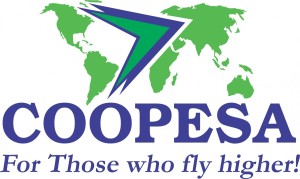 |
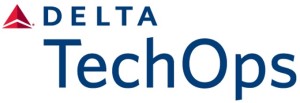 |
|
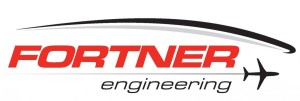 |
 |
|
 |
 |
|
 |
 |
|
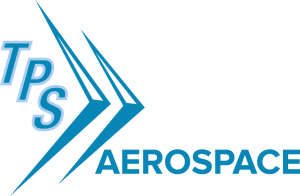
|
Have You Seen These People? 2016 Legislative Day & Annual Repair Symposium Speakers
By Sarah Hartley, Communications Coordinator
ARSA’s 2016 Annual Repair Symposium has an impressive line-up of speakers. Review the list below and register for Symposium today.
Steve Douglas, Vice President, CAVOK
Peggy Gilligan, Associate Administrator for Aviation Safety, Federal Aviation Administration (FAA)
David Marcontell, Vice President, CAVOK
Timothy W. Shaver, Acting Manager, Aircraft Maintenance Division, FAA
Karl Specht, Continuing Airworthiness Organisations Manager, Approvals and Standardisation Directorate, European Aviation Safety Agency (EASA)
Hélio Tarquinio Júnior, General Manager, Continuous Airworthiness General Branch, Department of Airworthiness, National Civil Aviation Agency of Brazil (ANAC)
Dorenda Baker, Director, Aircraft Certification, FAA
Paul Hawthorne, Director of Global Support Quality, Moog Aircraft Group
James Brown, Executive Director, STEM Education Coalition
Tim Welsh, Executive Director – Aviation Industry Services, National Center for Aviation Training
Ryan Goertzen, President, Aviation Technician Education Council
Gary Hudnall, General Manager, Jet Center Medford & President, ARSA
Keith Lardie, Aerospace Engineer, Operational Oversight Policy Branch, FAA
Wayne “Buck” Foughty, Manager of Quality Assurance, AAR Aircraft Services – OK
Shirley Z. Negri, Chief Operating Officer, NATA Compliance Services, LLC
Mohan S Perumal, Associate Vice President, Sales & Implementations, Ramco Systems
Thomas B. McVey, Chair, International Section, Williams Mullen
David Fitzsimmons, Program Manager, Delta Air Lines
Al Givray, Law Partner, Davis Graham & Stubbs, LLP & General Counsel, The NORDAM Group, Inc.
Brian Karpiel, Managing Director – Investment Banking, Seabury Group LLC
Take Advantage of ARSA’s Members Getting Members Program, Get 10% Off on Membership Dues
The best form of advertising is word of mouth. Use the Members Getting Members Toolkit to recruit an ARSA member and your company will receive a discounted membership rate for your next membership term.
Get more information at http://arsa.org/membership/members-getting-members/.
Target Your Message: Advertise Today in ARSA’s Newsletters and Website!
ARSA has a menu of advertising opportunities for arsa.org, the hotline and the ARSA Dispatch.
Take advantage of these great opportunities today to showcase your company, a new product or event. For more information go to http://arsa.org/advertise/
Exhibit, Sponsor the 2016 Repair Symposium
As the maintenance industry’s top event devoted exclusively to regulatory compliance, the ARSA Symposium attracts a highly qualified professional audience.
Use this opportunity to promote your company while showing support for ARSA. Get more information at http://arsa.org/news-media/events/arsa-symposium/arsa-annual-repair-symposium-sponsorship/
A Member Asked…Signing off on Maintenance
Q: I have a question regarding maintenance signoffs under a repair station certificate. Is there a legal requirement for a sign-off to list the data reference along with description?
A: All persons performing maintenance, preventive maintenance and alterations must complete a maintenance record under § 43.9. Section 43.9(a)(1) requires the maintenance record to contain a “description (or reference to data acceptable to the Administrator) of the work performed.” This disjunctive requirement means that you must include either a description of the work or a reference to the applicable technical data. Only one is required by FAA (EASA requires both).
The description is further explained in Advisory Circular 43.9C ¶(5)(d), which indicates that the description “should be in sufficient detail to permit a person unfamiliar with the work to understand what was done, and the methods and procedures used in doing it.” The FAA recognizes that an extensive work scope can result in a “voluminous” record and therefore the rule permits a reference to the applicable maintenance manual or data “in lieu of making a detailed entry.”
The FAA recently issued a memorandum clarifying that when a maintenance provider cites a maintenance manual or other data in a § 43.9 record, the revision level/date is not required to be included in the record. Of course, for repair stations that hold an EASA certificate, completion of the FAA Form 8130-3 is expected and the description in block 12 must include the maintenance data used as well as its revision level.
Finally, the “maintenance release” or “sign-off” under § 43.9(a)(4) is affixed after an inspection that establishes the work was performed satisfactorily. That signature certifies that the work was performed in accordance with part 43 (without any need for additional verbiage).
For more on paperwork and sign-off requirements in part 43, register for one of Sarah MacLeod’s online training sessions on recordkeeping…make sure you know how to finish the job.
AVMRO News Portal
ARSA strives to provide resources to educate the general public about the work of the association’s member organizations; should you need to provide a quick reference or introductory overview to the global MRO industry, please utilize AVMRO.ARSA.org.
AVMRO Industry Roundup
ARSA monitors media coverage on aviation maintenance to spread the word about the valuable role repair stations play globally by providing jobs and economic opportunities and in civic engagement. These are some of this month’s top stories highlighting the industry’s contributions.
You can explore these stories through ARSA’s Dispatch news portal.
Upcoming Events
Industry Calendar
ARSA Legislative Day & Annual Repair Symposium – Arlington, Virginia – March 16-18
Gorham PMA Parts/DER Repairs Conference – San Diego, California – March 21-23
Brazing Symposium – Dallas, Texas – April 4-5
MRO Americas – Dallas, Texas – April 5-7
2016 Aerospace Maintenance Competition – Dallas, Texas – April 5-7
ATEC Annual Conference – Atlanta, Georgia – April 9-12
Avionics Maintenance Conference – Atlanta, Georgia – April 25-28
Going Global – March 4
Repair Stations Go to Washington – March 9
Recordkeeping for Mechanics – March 23
Recordkeeping for Repair Stations – March 30
Recordkeeping for Airlines – April 6

| SPONSORED CONTENT |
 The FAA is very concerned about counterfeit aircraft parts. They call them Suspected Unapproved Parts (SUP). Having any in your inventory could be a legal disaster!!
The FAA is very concerned about counterfeit aircraft parts. They call them Suspected Unapproved Parts (SUP). Having any in your inventory could be a legal disaster!!
- There is onlyone centralized DataBase of Suspected Unapproved Parts – Over 60,000 of them. Find the ones on your shelves before the FAA fines you.
- There is onlyone integrated PMA/AD System. Find ADs that apply to or reference any of almost 1,000,000 PMA parts. Do multi-level PMA research.
- Due Diligence is the key phrase and The Aviation DataBase® is the only source for an easy and inexpensive way to do it. Head off the legal problem before it occurs.
- There is a User friendly and searchable copy of the Flight Standards Information Management System (FAA Order 8900.1) in The Aviation DataBase®.
- Do you need an Aviation Regulatory Library?: Over 18,000 ADs – Large & Small AC, Over 1,500 Type Certificate Data Sheets, Over 1,200 FAA Advisory Circulars.
- Call Aviation DataSource, Inc. (800) 952-8844.You can be using The Aviation DataBase® within minutes.
the hotline is the monthly publication of the Aeronautical Repair Station Association (ARSA), the not-for-profit international trade association for certificated repair stations. It is for the exclusive use of ARSA members and federal employees on the ARSA mailing list. For a membership application, please call 703.739.9543 or visit http://arsa.org/membership/join/. This material is provided for educational and informational purposes only. It does not constitute legal, consulting, tax or any other type of professional advice. Law, regulations, guidance and government policies change frequently. While ARSA updates this material, we do not guarantee its accuracy. In addition, the application of this material to a particular situation is always dependent on the facts and circumstances involved. The use of this material is therefore at your own risk. All content in the hotline, except where indicated otherwise, is the property of ARSA. This content may not be reproduced, distributed or displayed, nor may derivatives or presentations be created from it in whole or in part, in any manner without the prior written consent of ARSA. ARSA grants its members a non-exclusive license to reproduce the content of the hotline. Employees of member organizations are the only parties authorized to receive a duplicate of the hotline. ARSA reserves all remaining rights and will use any means necessary to protect its intellectual property.
© 2016 Aeronautical Repair Station Association






